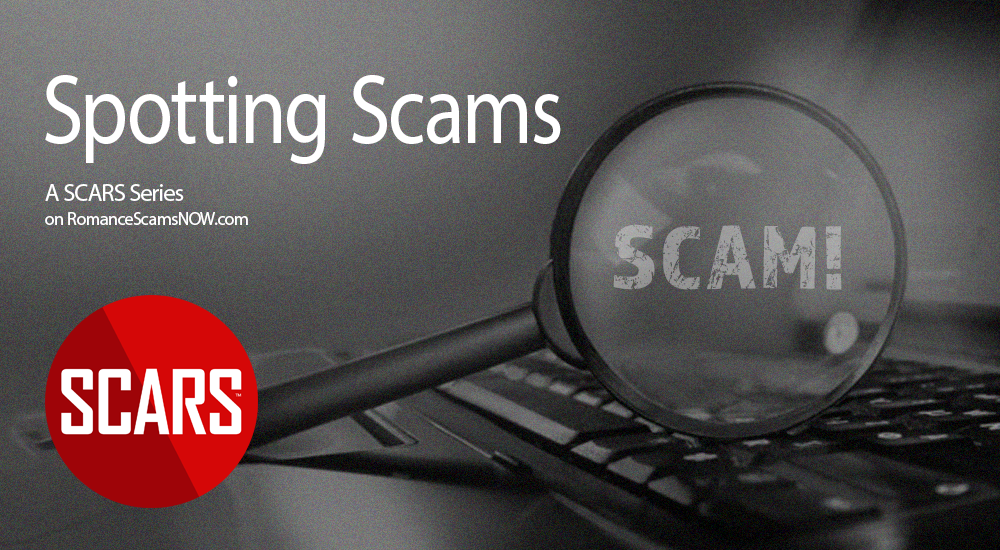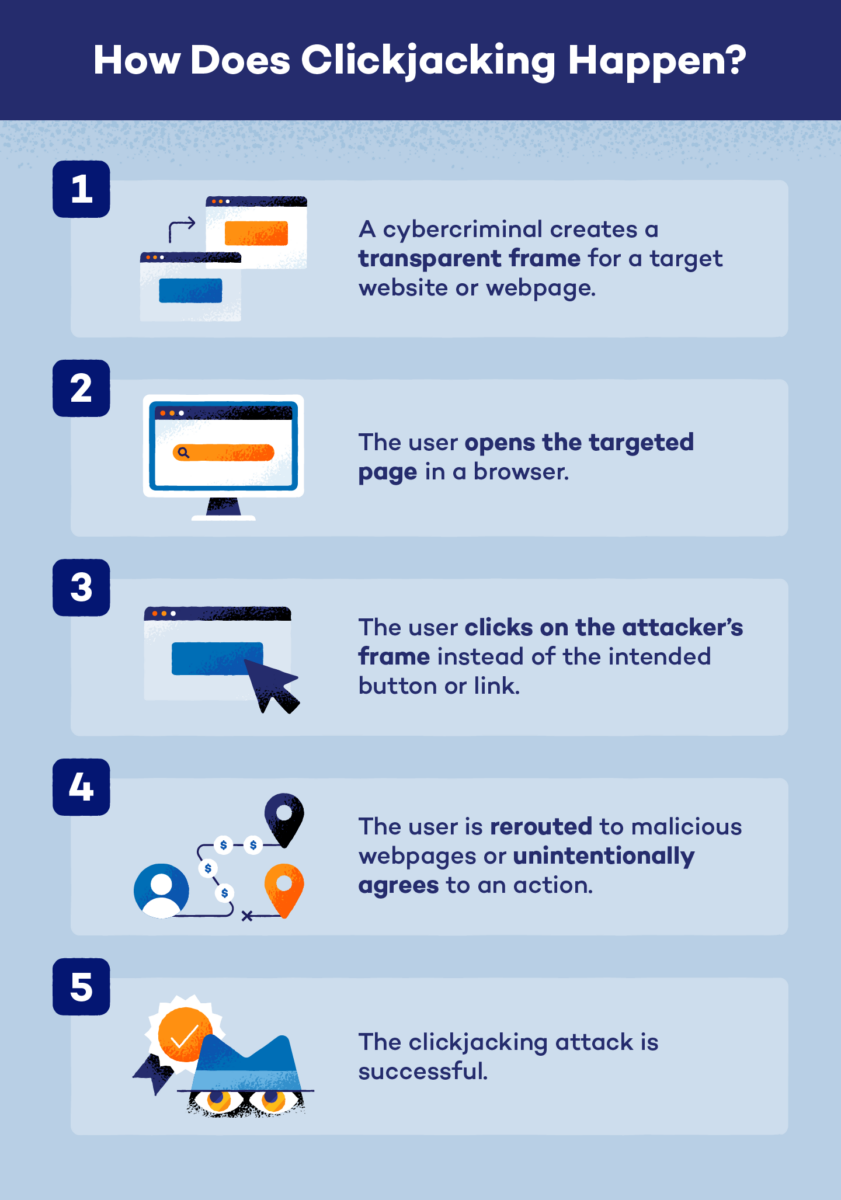Clickjacking Is Becoming A Significant Danger Online
But you will NOT find it on major websites or Shopify stores (such as SCARS websites,) so be careful on small third-party websites
Clickjacking is a malicious online attack that tricks users into clicking on a seemingly innocuous object on a webpage, such as a button or link, when in reality they are clicking on an invisible or disguised element that performs a different action. The attacker’s goal is to redirect the user’s click to a malicious webpage or to trigger an unwanted action, such as downloading malware or making an unauthorized purchase.
Clickjacking Definition:
The malicious practice of manipulating a website user’s activity by concealing hyperlinks beneath legitimate clickable content, thereby causing the user to perform actions of which they are unaware.
The technique of clickjacking often involves using HTML frames, which are essentially nested webpages embedded within another webpage. By carefully layering and positioning these frames, attackers can create a hidden overlay on top of the legitimate webpage, making it appear that the user is clicking on an element on the visible page when they are actually clicking on the hidden frame. This hidden frame can then execute the attacker’s desired action.
What is Clickjacking?
According to Fox News:
What is clickjacking?
Clickjacking is a trick where a malicious website tricks you into clicking on something different from what you think you’re clicking on. Imagine you’re trying to click on a button, to play a video, but instead, you’re actually clicking on a hidden link that does something else, like sharing your personal information, downloading malware, transferring funds, or liking a page without you knowing. It’s like a digital bait-and-switch.
Clickjacking Attacks
Clickjacking attacks can be used for a variety of purposes, including:
-
Spreading malware: Attackers can use clickjacking to redirect users to malicious web pages that automatically download malware onto their devices.
-
Generating ad revenue: Clickjacking can be used to force users to click on ads or affiliate links, generating revenue for the attacker.
-
Boosting social media engagement: Attackers can use clickjacking to artificially inflate the number of clicks or likes on social media posts, making them appear more popular.
-
Stealing sensitive information: Clickjacking can be used to trick users into entering sensitive information, such as login credentials or credit card numbers, onto fake websites.
Online Ads & Clickjacking
NOTE: SCARS websites do not allow ads to help prevent malicious adware attacks (we depend on your donations instead.)
Online ads can be used as clickjacking attacks. In fact, clickjacking is a common way for scammers to generate ad revenue. By tricking users into clicking on ads, scammers can earn money from the advertisers.
There are a few different ways that scammers can use online ads to clickjack users. One common method is to use a hidden iframe. An iframe is an HTML element that allows you to embed one webpage inside another webpage. Scammers can use a hidden iframe to create a transparent overlay on top of a legitimate webpage. This overlay can then be used to trick users into clicking on an ad.
Another way that scammers can use online ads to clickjack users is to use a JavaScript redirect. A JavaScript redirect is a piece of code that can be used to redirect a user to a different webpage when they click on a link or button. Scammers can use a JavaScript redirect to redirect users to an ad webpage, even if the user clicked on a different link or button.
Clickjacking can be difficult to detect, but there are a few things you can look for to protect yourself.
- First, be wary of ads that seem too good to be true. If an ad is offering something that seems too good to be true, it probably is.
- Second, be careful about clicking on ads that are very close together. Scammers often try to trick users into clicking on multiple ads by placing them very close together.
- Finally, be sure to keep your web browser and operating system up to date. Software updates often include security patches that can help to protect against clickjacking attacks.
Identify a Website that Engages in Clickjacking
Identifying websites that engage in clickjacking can be challenging, as attackers are constantly devising new methods to conceal their malicious intentions. However, there are several telltale signs that can raise suspicions and warrant further investigation:
-
Unusually Large or Overlapping Buttons: Pay attention to buttons or links that seem disproportionately large or extend beyond the boundaries of their intended container. This could indicate the presence of a hidden overlay.
-
Unexpected Redirects or Pop-ups: If clicking on a seemingly innocuous element causes unexpected redirects to unfamiliar websites or triggers pop-ups, it could be a sign of clickjacking.
-
Discrepancies in Hover Behavior: Hover over buttons or links to observe the actual URL that appears. If the URL changes unexpectedly or doesn’t match the visible content, it could be a sign of clickjacking.
-
Unusual Delays or Lags: If there’s a noticeable delay or lag between clicking on an element and the expected action, it could indicate the presence of a hidden overlay or malicious script.
-
Inconsistent User Interface (UI) Elements: If the UI elements on a website appear misaligned, overlapping, or inconsistent with standard web design principles, it could be a sign of clickjacking or other malicious intent.
-
Unprompted Downloads or Installations: If clicking on a website element triggers automatic downloads or installations without explicit consent, it’s a clear indication of malicious activity.
-
Overly Pushy or Aggressive Sales Tactics: Websites that employ excessive pressure tactics, such as countdown timers or limited-time offers, may use clickjacking to artificially drive sales.
-
Suspicious Third-Party Scripts: Use browser extensions like NoScript or uBlock Origin to identify and block third-party scripts that may be responsible for clickjacking or other malicious behavior.
Remember, if you suspect a website is engaging in clickjacking, avoid clicking on any links or buttons, and report the website to the appropriate authorities.
Protect Against Clickjacking
To protect yourself from clickjacking, you should follow these tips:
-
Be cautious when clicking on links or buttons, especially on unfamiliar websites. Hover over links to see the actual URL before clicking, and be wary of buttons that seem too good to be true.
-
Install a reputable ad blocker. Ad blockers can help to prevent clickjacking attacks by blocking malicious scripts and overlays.
-
Keep your web browser and operating system up to date. Software updates often include security patches that can help to protect against clickjacking attacks.
-
Be aware of the signs of clickjacking. If you see a webpage that appears to have hidden elements or if you are unsure about the legitimacy of a link or button, avoid clicking on it.
- Install a security extension for your web browser. (SCARS uses MalwareBytes) Security extensions can help to protect you from a variety of online threats, including clickjacking.
How Does A ClickJacking Attack Work? Courtesy of Panda
More:
- Clickjacking: Definition and Attack Prevention – Panda Security
- Clickjacking Articles | Malwarebytes
- Choices: A Cybersecurity Learning Lesson – Guest Editorial by Brett Johnson (romancescamsnow.com)
- Understanding Cybersecurity for Small Businesses [PDF][UPDATED] (romancescamsnow.com)
- SCARS™ Cyber Basics: Social Media Cybersecurity (romancescamsnow.com)
- Understanding Internet Network Protocols – What They Mean – Cyber Basics (romancescamsnow.com)
- Cyber Basics: Creating Safe Passwords (romancescamsnow.com)
- Understanding Criminality – What Is Its Essence? 2023 (scamsnow.com)
- Scammers Are The New Boogeymen! 2023 (scamsnow.com)
- Cybersecurity and Cybersafety for Charitable Organizations 2023 (scamsnow.com)
- Social Media – Where Scams Are Born! (scamsnow.com)
- Teens And Young Adults: Now A Major Target Of Scammers (scamsnow.com)
- How to block ads like a pro (malwarebytes.com)
SCARS Resources:
- Getting Started Right: ScamVictimsSupport.org
- Sextortion Scam Victims: Sextortion Victims Support – The Essentials (scamvictimssupport.org)
- For New Victims of Relationship Scams newvictim.AgainstScams.org
- Subscribe to SCARS Newsletter newsletter.againstscams.org
- Sign up for SCARS professional support & recovery groups, visit support.AgainstScams.org
- Join our Scam Survivors United Chat & Discussion Group facebook.com/groups/scam.survivors.united
- Find competent trauma counselors or therapists, visit counseling.AgainstScams.org
- Become a SCARS Member and get free counseling benefits, visit membership.AgainstScams.org
- Report each and every crime, learn how to at reporting.AgainstScams.org
- Learn more about Scams & Scammers at RomanceScamsNOW.com and ScamsNOW.com
- Scammer photos ScammerPhotos.com
- SCARS Videos youtube.AgainstScams.org
- Self-Help Books for Scam Victims are at shop.AgainstScams.org
- Donate to SCARS and help us help others at donate.AgainstScams.org
- Worldwide Crisis Hotlines: https://blog.opencounseling.com/suicide-hotlines/
Other Cyber Resources
- Block Scam Domains: Quad9.net
- Global Cyber Alliance ACT Cybersecurity Tool Website: Actionable Cybersecurity Tools (ACT) (globalcyberalliance.org) https://act.globalcyberalliance.org/index.php/Actionable_Cybersecurity_Tools_(ACT)_-_Simplified_Cybersecurity_Protection
- Wizer Cybersecurity Training – Free Security Awareness Training, Phishing Simulation and Gamification (wizer-training.com)
-/ 30 /-
What do you think about this?
Please share your thoughts in a comment below!
Do You Need Support?
Get It Now!
SCARS provides the leading Support & Recovery program for relationship scam victims – completely FREE!
Our managed peer support groups allow victims to talk to other survivors and recover in the most experienced environment possible, for as long as they need. Recovery takes as long as it takes – we put no limits on our support!
SCARS is the most trusted support & education provider in the world. Our team is certified in trauma-informed care, grief counseling, and so much more!
To apply to join our groups visit support.AgainstScams.org
We also offer separate support groups for family & friends too.
Become a
SCARS STAR™ Member
SCARS offers memberships in our STAR program, which includes many benefits for a very low annual membership fee!
SCARS STAR Membership benefits include:
- FREE Counseling or Therapy Benefit from our partner BetterHelp.com
- Exclusive members-only content & publications
- Discounts on SCARS Self-Help Books Save
- And more!
To learn more about the SCARS STAR Membership visit membership.AgainstScams.org
To become a SCARS STAR Member right now visit join.AgainstScams.org
To Learn More Also Look At Our Article Catalogs
Scam & Crime Types
More SCARS
- ScamsNOW Magazine – ScamsNOW.com
- ContraEstafas.org
- ScammerPhotos.com
- AnyScam.com – reporting
- AgainstScams.org – SCARS Corporate Website
- SCARS YouTube Video Channel














Leave A Comment